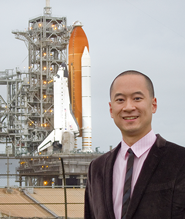Science on the International Space Station
Why tell our story?
There are lots of papers, reports, blogs and general writing on space, NASA, and science. So why write more?
Because very, very few people actually understand how science experiments are conducted, from start to finish, either in the lab, or onboard the on-orbit laboratory of the International Space Station (ISS).
My aim here to tell the story of how science actually works, for a broad audience:
- the general tax-paying public who wants to know more about what is going on in NASA
- NASA staff who may be deeply knowledgable about a small part of the process, but don’t get a good overview—and who want to hear directly from the Principal Investigators (scientists)
- policy folks who want a deeper view of what we do, beyond what can be described in a report
- the astronaut crew on we work with, who want a direct line to what we are doing
I intend this to be a cross-breed of a blog, textbook, collection of essays and technical manual. Some of the posts will give the nitty-gritty in medias res narrative of what we are doing on a day-to-day basis. Other entries will summarize previous knowledge to give an historical context to the work we are doing. Still others may dive a little deeper into the technical details of the tools we are using, hardware and software, both to do the science and communicate its results. I hope to cover a broad range:
- The scientific background of experiments that precede and motivate ours
- What we are actually trying to understand in our current experiment
- How we prepare and characterize our experimental samples
- What instrumentation and laboratory apparatus we use, on the ground and in orbit
- The process of packaging and launching our samples to the ISS
- Conducting on-orbit experiments in collaboration with the astronaut crew
- The raw data and how we process it
- How our analysis leads to the scientific story we will tell through papers and presentations
- Writing a scientific paper
- Preparing a scientific talk (and possibly its presentation)
Opening up the process of doing science
I aim to be maximally open throughout. This means posting raw data when feasible, the actual computer code we use for the analysis (and potentially giving a way for you all to play with the data and code yourself in an interactive environment—stay tuned), early drafts of the paper as we write it, and maybe our presentation drafts before they are delivered.
My commitment here is to make as much of our work accessible directly to anyone to tinker with: open-source software, open-access publications, but also free, open access to the raw data; even this website itself, hosted on Github, is completely open—not just the text, but the entire revision history, and the code that runs it. So please download, play around, make your own modifications, and let me know what you think—and if you found something new that we might have missed. This is a different way of doing science that takes advantage of a lot of the new information-based technologies that were not available in years past, and the way I think science should be done. I will elaborate more on the motivation and tools in a later post.
Who am I?

I am a physicist at Harvard, currently serving in a staff position known as a post-doctoral fellow, meaning I continue to do research after receiving my PhD. I am funded by NASA directly through a research grant to my official employer, Harvard University (Cambridge, MA), which broadly-speaking supports the scientific aspects of our work. I also receive some additional support as a subcontractor to assist with the engineering aspects, helping to develop and test the hardware and software, of the experiment by working closely with the main NASA contractor, ZIN Technologies (Cleveland, OH). More information on me and my work can be found on my webpage, peterlu.org. I act independently, and represent my own views here. Though I am employed by Harvard, they do not control (pretty much ever) what any of us say or do. NASA, similarly, gives a research grant and is not able (as much as they sometimes would like) to be able to control what its funding recipients can say. ZIN is contracted to engineer, deploy and run complex instrumentation and serves in a technical capacity, and does not appear to have much of a corporate message to spread beyond NASA.
I do anticipate some fraction of what I write to disagree with the perspectives of others; if 80% of the readers agree with me 80% of the time, then that to me is a healthy balance that still leaves room for new ideas to develop and be fleshed out in a congenial manner. If you think I am a little off-base, please leave some respectful comments and I will do my best to respond in a timely fashion (though note that I will moderate and delete anything offensive, off-topic, spam, or irrelevant).
Hopefully we have an interesting and informative journey, and do some great science along the way!